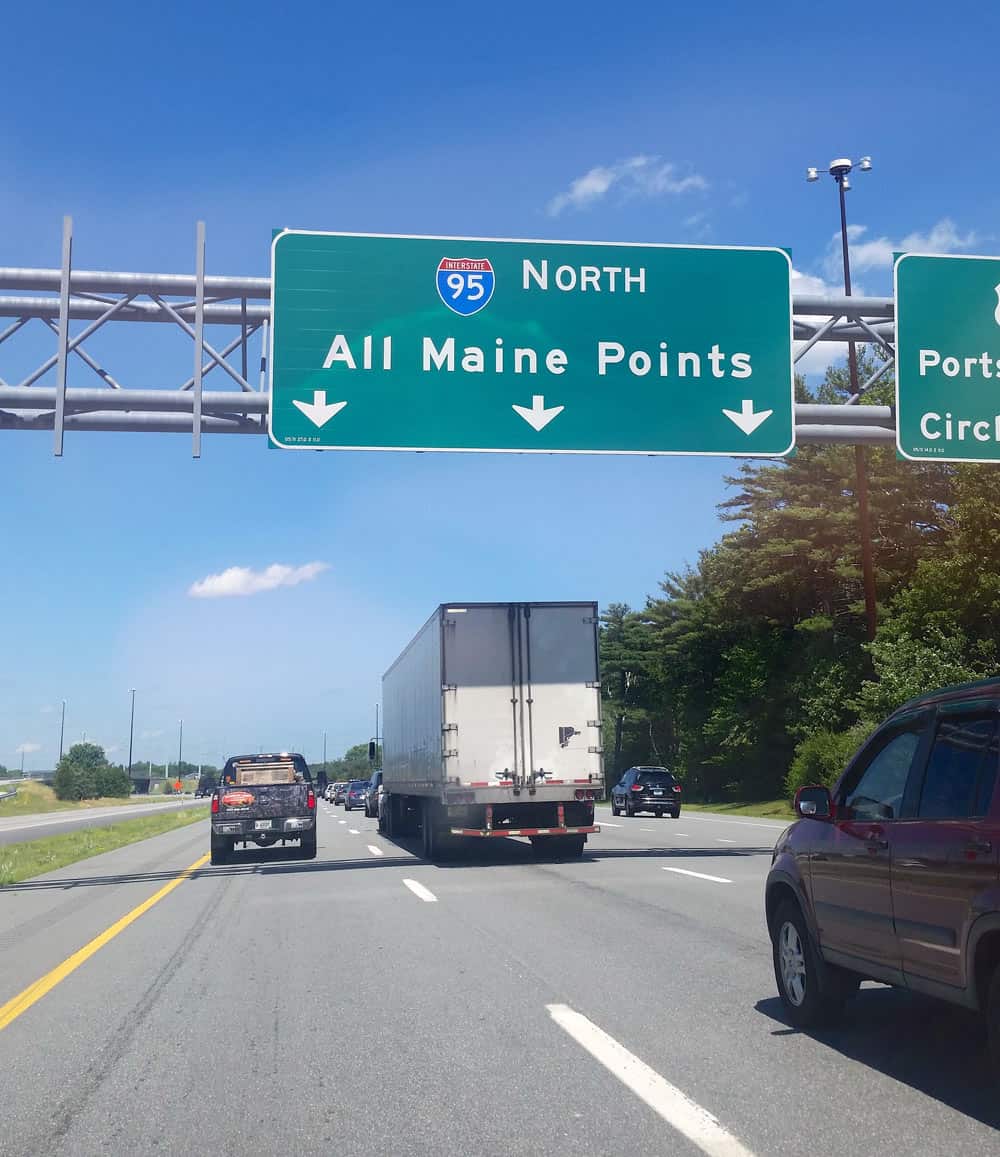Maine Commercial Truck Insurance

Commercial truck insurance in Maine acts as a financial safety net for trucking businesses facing accidents, property damage, or other mishaps.
Running a semi truck business in Maine isn’t just about moving cargo from point A to B—you’ve got to keep everyone protected along the way. Commercial trucking insurance is required by Maine law and helps cover costs if an accident occurs, protecting operators from major financial loss. Without the right policy, you’re not just risking fines, but also your business’s stability if something goes wrong.
Truck operators in the state have to meet specific insurance minimums, and figuring out which provider fits your operation can be a bit of a headache. Every day brings new risks, so understanding the rules and your options is honestly pretty important if you want to avoid nasty surprises down the road.
Who Needs Coverage In Maine
If you’re running a commercial truck in Maine for business, you need insurance. That goes for owners, operators with their own rigs, for-hire drivers, and companies with fleets. Whether you’re delivering packages, hauling equipment, or moving building materials, you’ll want the right policy to stay on the road and out of trouble.
Examples of those who need coverage:
- Freight haulers
- Delivery service providers
- Owner-operators working under their own authority
- Companies with trucks used for construction or moving services
Even a single-truck outfit can get hit with fines or have operations suspended if they skip insurance. Staying covered keeps you rolling and avoids business interruptions.
Maine trucking insurance coverage is basically a bundle of protections for trucking companies and independent drivers. You’re looking at coverage for injuries, property damage, and lost cargo—plus whatever else your business might need. Not only does this keep you legal, but it helps with those big, unexpected bills that can hit after a crash.
By law, you’re looking at minimum liability coverage—usually $50,000 per person and $100,000 per accident for injuries, and $25,000 for property damage.
A lot of companies go for higher limits or tack on extra coverage for peace of mind. There are options for medical payments, uninsured motorists, and even coverage for accidents where your driver’s at fault.
Honestly, insurance is what lets trucking companies keep their doors open after a bad day. It’s not just about following the law—it protects your assets and your reputation if things go sideways.
How Much is Trucking Insurance in Maine per year?
Prices for Maine commercial truck insurance can vary by thousands of dollars a year. On average, you’re looking at about $13,792, but it might be anywhere from $11,000 to $15,000 depending on your risk and what you cover.
Requirements For Maine Truck Operators

If you’re operating a commercial truck in Maine, you’re expected to follow a set of state and federal rules. That means insurance, licensing, and a bunch of paperwork—skip any of it, and you could face penalties.
State Regulations
First off, you’ll need a commercial driver’s license (CDL) to drive a truck in Maine. The state says you have to be at least 18 for in-state routes, 21 if you’re crossing state lines. Regular safety inspections are part of the deal, too—no one wants unsafe trucks out there.
There are also permits, inspections, and weight rules to keep up with. Oversized loads? You’ll need special permits. Keep all your records and permits handy—inspectors can ask for them anytime.
Don’t forget the insurance paperwork. Maine wants proof you’re covered, so forms like JB and K need to be in order and current.
Federal Compliance (FMCSA)
If your trucks cross state lines or haul certain freight, you’ll answer to the Federal Motor Carrier Safety Administration (FMCSA) too. Interstate operators or those carrying hazardous stuff have to play by federal rules.
You’ll need a USDOT number, register with the Unified Carrier Registration (UCR), and pass drug and alcohol testing. There’s also a bunch of federal safety audits and accident logs to maintain. Even if you’re a small operator, if you cross state lines, these rules apply.
Drop the ball on compliance, and you’re looking at fines or losing your registration—definitely not worth the risk.
Minimum Coverage Limits
Maine follows both state and federal insurance requirements for commercial trucks. The minimums depend on what you’re hauling and how much it weighs.
- Non-hazardous freight under 10,001 lbs: at least $300,000 in liability.
- Non-hazardous freight over 10,001 lbs: minimum $750,000 liability.
- Hazardous materials: $1,000,000 to $5,000,000, depending on the cargo.
Always keep proof of insurance up to date and ready for officials—it’s just part of the job.
What About Drivers With Prior Traffic Violations in Maine?
Maine SR22 Insurance
Maine sometimes requires drivers with a suspended license or serious violations to get SR22 Insurance coverage. SR22 insurance isn’t actually a separate policy—it’s more like a form your insurer files to prove you’ve got coverage.
If you’ve been hit with a DUI, caught driving without insurance, or had a major accident, the Maine Bureau of Motor Vehicles might ask you to file an SR22 before you get your license back.
Some basics about Maine SR22 insurance:
| Requirement | Details |
|---|---|
| Who needs it? | Drivers with suspended licenses |
| What does it show? | Proof of insurance coverage |
| Filing period | Usually 3 years |
| Where to file | With the state and insurer |
Most insurers in Maine can file an SR22 electronically, and it usually doesn’t take long once your policy is active.
SR22 coverage is often pricier than standard insurance, since it’s for high-risk drivers. The cost depends on your driving record and any past violations.
Some companies focus on helping drivers get SR22 insurance in Maine and can walk you through the process. They’ll handle the forms and help you get legal again.
If you’ve been caught driving uninsured, gotten a DUI, or racked up repeat offenses, you’ll probably need an SR22. It’s really about making sure everyone on Maine’s roads is protected.
Frequently Asked Questions
Rates and coverage for Maine commercial truck insurance hinge on a bunch of things—the truck, the cargo, state requirements, and more. Knowing what’s what can help companies stay on the right side of the law and maybe even keep costs down.
What factors determine the cost of truckers insurance in Maine?
It’s a mix: type of truck, what you’re hauling, driving records, and where those wheels are rolling. Insurance history and company size sneak into the equation too.
The value of your rig and your claims history? Yeah, those matter as well.
How can I file a commercial insurance claim in Maine?
If you need to file, call your insurance company as soon as you can after something happens. Be ready with details—photos, paperwork, whatever you’ve got.
Most insurers have a phone line or an online portal now, which makes things a bit less painful.
Which company offers the best commercial truck insurance in Maine?
Honestly, “best” depends on what you’re after—coverage, service, price. Names like Joe Morten & Son, Inc., Progressive, and a few other specialists pop up a lot in Maine.
It’s worth shopping around, comparing policies and reading reviews before you settle.
What is the minimum required trucking insurance coverage in Maine?
Maine law says you need liability coverage: at least $50,000 per person, $100,000 per accident for bodily injury, and $25,000 for property damage. Those are just the minimums—some truckers will need more, depending on what they’re hauling or their contracts.


